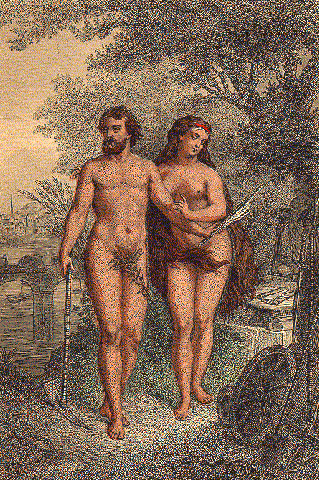 |
 |
 |
 |

26. And God said, Let us make man in our image, after our likeness: and let them have dominion over the fish of the sea, and over the fowl of the air, and over the cattle, and over all the earth, and over every creeping thing that creepeth upon the earth.The second appears in Genesis 2:6-25:27. God created man in his [own] image, in the image of God created he him; male and female created he them.
28. And God blessed them, and God said unto them, Be fruitful, and multiply, and replenish the earth, and subdue it: and have dominion over the fish of the sea, and over the fowl of the air, and over every living thing that moveth upon the earth.
6. But there went up a mist from the earth, and watered the whole face of the ground.In the former account God has a much more direct and personal relationship with the creature he has created than in the second, where Adam is essentially set on his own responsibility from the start. The problem of solitude and the issue of responsibility, in turn, become major motifs of Frankenstein, and, interestingly enough, are shared equally by the creator and his creature. Solitude is not an issue for Milton's Adam, but human responsibility is at the very heart of Milton's own ideology and is emphasized by the long soliloquy in book X in which Adam attempts to indict God but in the end accepts his own guilt, the soliloquy from which Mary Shelley derived the epigraph to her novel.7. And the LORD God formed man [of] the dust of the ground, and breathed into his nostrils the breath of life; and man became a living soul.
8. And the LORD God planted a garden eastward in Eden; and there he put the man whom he had formed.
There are numerous resonances of the figure of Adam in Frankenstein, beyond the obvious one provided by the Creature. The many figures who find themselves deprived of their normative comforts and forced to grope through experiences for which they have no prior basis for knowledge -- from Victor Frankenstein to Walton to the DeLaceys -- are all in their way avatars of our first father after the fall. Milton's final image of the "wandering" Adam seems, indeed, to hover over the entire conception of Mary Shelley's novel.